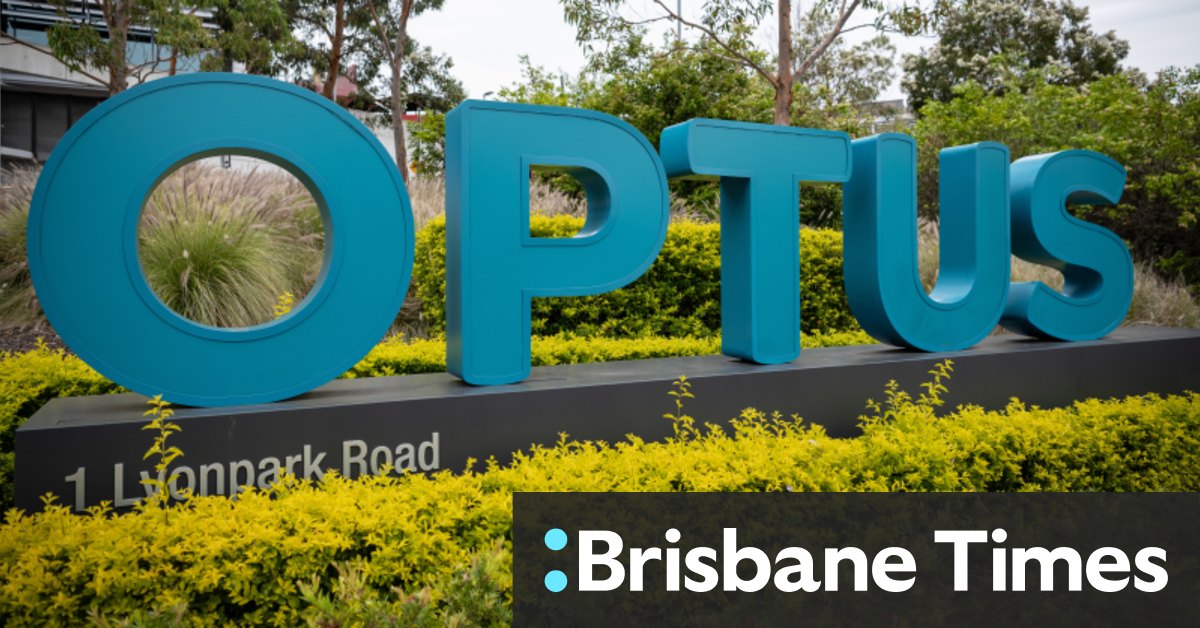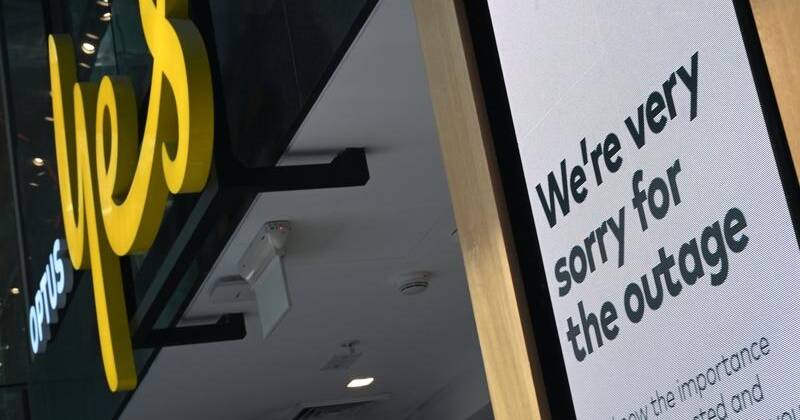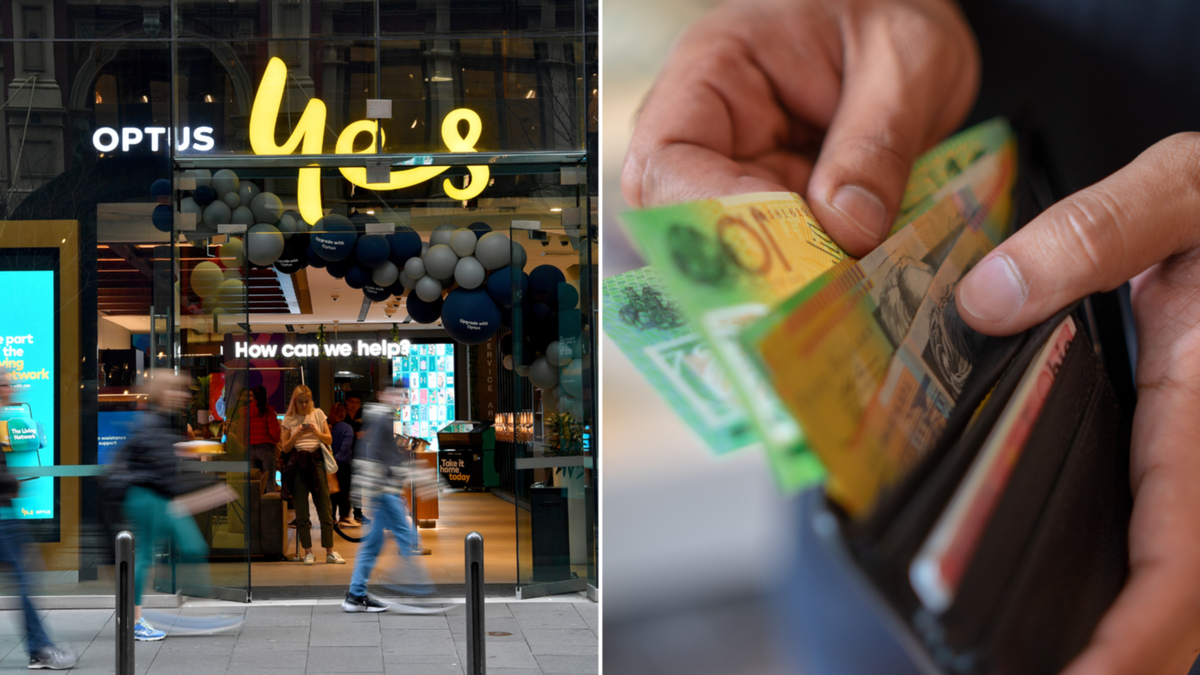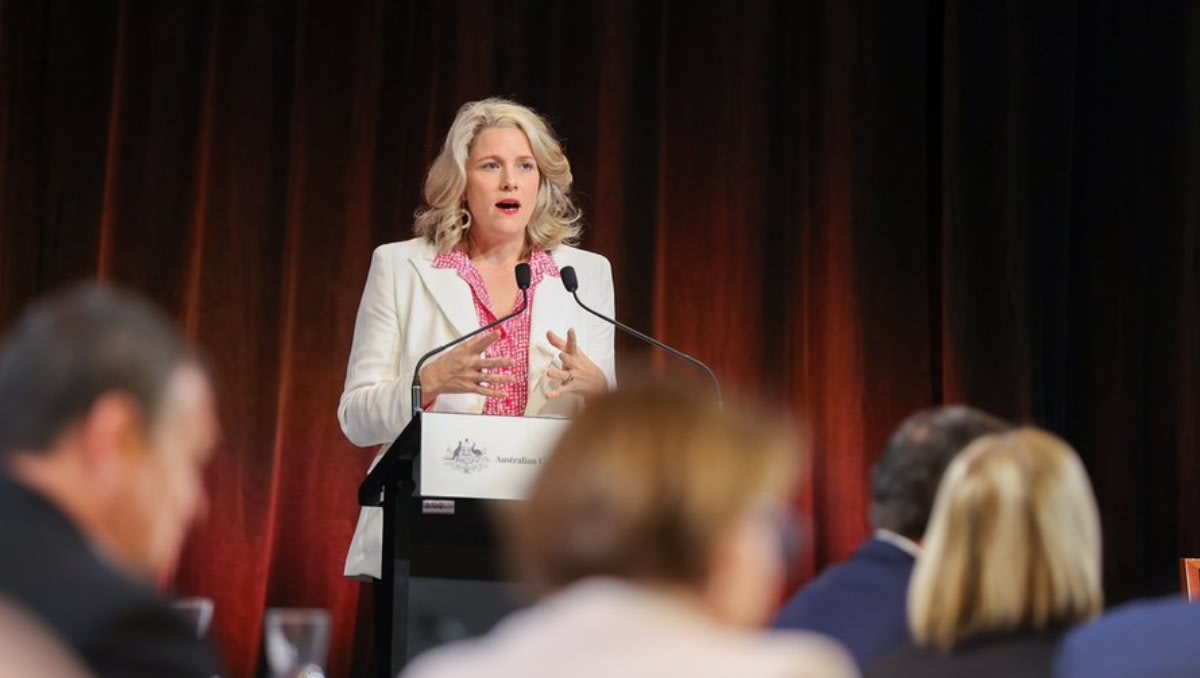And as recently last year Singtel was reportedly weighing an initial public offering of Optus, in what would be one of Australia’s largest-ever corporate listings. But the ongoing market volatility scuppered those plans.
Optus is fully owned by Singtel, which itself is majority owned by Temasek Holdings, the investment arm of the Singapore government, which owns 55 per cent of the company’s issued share capital.

People outside an Optus store on the day of the latest outage.Credit: Chris Hopkins
Aside from its own Singapore-based mobile network and Optus, Singtel also owns 32.15 per cent of Bharti Airtel, India’s second-largest carrier, as well as stakes in telcos across Thailand, the Philippines, South Asia, Africa and Indonesia.
Singtel’s latest annual report shows that 46 per cent of its staff are based out of Singapore, despite 81 per cent of its underlying net profit coming from operations outside of Singapore.
Singtel has stayed mostly silent while a mass outage engulfed its Australian subsidiary this month, issuing only two statements to journalists: firstly to issue a correction to Optus’ technical explanation for the outage, then secondly to announce Bayer Rosmarin’s resignation.
Singtel Group CEO Yuen Kuan Moon said on Monday that Optus was “an integral part of our group’s business.”

SingTel, Optus’ parent company, turned the finger back to Optus for its network outage last week.Credit: Bloomberg
The Singtel board is led by former Temasek boss Lee Theng Kiat, while veteran Australian corporate executives Gail Kelly and John Arthur also sit on the board. Arthur is a member of Singtel’s risk and sustainability committee.
The relative silence comes while Optus seemingly bleeds customers, with both TPG and Telstra reporting an early uptick in market share.
Data provided to this masthead from analysis firm Similarweb shows traffic to Vodafone’s website spiked on the day of the Optus outage.
“Vodafone would likely be the major beneficiary of any significant churn event,” a Similarweb analyst said.
‘[Optus] will be number two forever … they will never be number one with this approach and they will continue to lose customers.’
Boost Mobile founder Peter Adderton
Adderton has a long shared history with Optus: Boost originally relied on the Optus network in the early 2000s, before later switching to Telstra infrastructure. Optus settled a legal dispute with Adderton and Boost Mobile earlier this year, after Boost took issue with Optus naming two of its products “Mobile Boost” and “Internet Boost”. The terms of the settlement were confidential.
“They will be number two forever, unless number three [TPG] catches them,” Adderton said of Optus. “They will never be number one with this approach, and they will continue to lose customers.”
“Right now any issue with Optus is going to be a big issue. It would take a pretty strong CEO to take turn that around, but what I think it’s going to take is a sale of Optus from the Singaporeans.
I think that’s a question for every telco, to shift yourself more to being customer-centric, but especially for Optus which is facing a crisis in customer trust,” he said.

Former NSW premier Gladys Berejiklian is expected to become the new Optus chief executive.Credit: AAP
A former Optus executive who requested anonymity to be able to speak freely said that Singtel had for years “let Optus run its own show.”
“There are definite cultural differences, it’s just the reality that people in Singapore treat their relationships and their connections differently to how people do in Australia,” the executive said.
The former executive said that he expected former NSW premier Gladys Berejiklian to be appointed Optus’ next chief executive despite the findings of corruption against her earlier this year. They think the relationship between Singtel and Optus is still tenable despite the geographical and cultural differences.
“I think they would be happy to appoint another Australian in the role, despite the corruption stuff,” the executive said.
Another potential front-runner discussed by industry figures is Anna Yip, the current deputy CEO of Singtel’s consumer business.
Singtel did not respond to a request for comment. Optus’ chairman Paul O’Sullivan also did not respond to a request for comment.
Meanwhile, Joe Longo – chairman of the Australian Securities and Investments Commission (ASIC) – joined the widespread criticism of Optus executives’ handling of the outage on Tuesday and said it served as a warning for the rest of corporate Australia.
“I think with the benefit of hindsight, the communication could have been clearer,” he told ABC Radio. “It’s clear from what little we know, the extent of the disruption was entirely unexpected. And I think that’s where Optus was wrong-footed, so to speak, they didn’t expect a disruption or outage of this magnitude.”
The Business Briefing newsletter delivers major stories, exclusive coverage and expert opinion. Sign up to get it every weekday morning.



